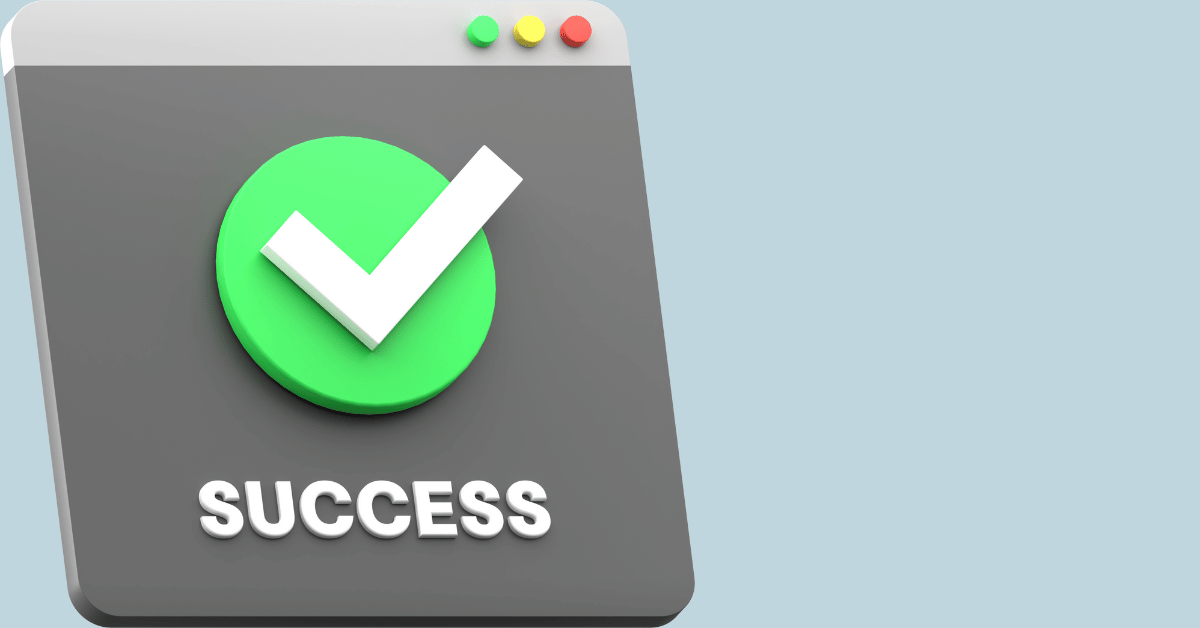We’ll cover common questions, tricky situations, and insider tips to help you land your dream job.
Let’s dive in and boost your interview confidence!

Understanding the Interviewer’s Perspective
Before we jump into specific questions, let’s get inside the interviewer’s head.
What are they really looking for?
Interviewers want to find out three main things:
- Can you do the job?
- Will you fit in with the team?
- Are you genuinely interested in the role and company?
Keep these points in mind as we go through different types of questions.
They’ll help you tailor your answers to what the interviewer really wants to hear.

Preparing for Common Job Interview Questions
Let’s tackle some job interview questions you’re likely to face in any interview.
“Tell me about yourself”
This classic opener isn’t an invitation to recite your life story.
Instead, think of it as your elevator pitch.
Focus on your professional journey and skills relevant to the job.
Start with your current role, highlight a couple of key achievements, and explain why you’re interested in this new opportunity. Address your current job positively, focusing on what you’ve learned and how it has prepared you for this next step.
For example:
“I’m currently a marketing coordinator at XYZ Company, where I’ve been for the past three years. I’ve led several successful campaigns, including one that increased our social media engagement by 50%. I’m passionate about digital marketing and always looking for new challenges, which is why I’m excited about the opportunity at your company.”
Get Expert Help
Our cutting edge AI interview preparation gives you complete preparation for your interview. Get started Now!
“Why do you want to work here?”
This is your chance to show you’ve done your homework.
Research the company beforehand and find specific aspects that appeal to you.
Maybe it’s their innovative products, company culture, or commitment to sustainability.
Whatever it is, make sure your answer demonstrates genuine interest and aligns with your career goals.
A good response might sound like:
“I’ve been following your company’s work in renewable energy for a while now. Your recent project developing more efficient solar panels really caught my attention. As someone who’s passionate about sustainable technology, I’d love to contribute to projects like that. Plus, I’ve heard great things about your collaborative work environment from a former colleague who works here.”
“What’s your greatest weakness?”
This tricky question isn’t about exposing your flaws; it’s a common topic in behavioral interview questions.
It’s about showing self-awareness and a commitment to improvement.
Choose a real weakness, but one that’s not critical to the job you’re applying for.
Then, explain how you’re actively working to overcome it.
Here’s an example:
“I used to struggle with public speaking. It made me nervous to present in front of large groups. But I recognized this was holding me back, so I joined a local Toastmasters club. Over the past year, I’ve given several speeches and even won a best speaker award. I still get nervous sometimes, but I’ve learned techniques to manage it and can now confidently lead presentations.”
“Where do you see yourself in five years?”
Employers ask this to gauge your ambition and whether you’re likely to stick around. Be honest about your career goals, but make sure they align with the company’s growth potential.
A solid answer might be:
“In five years, I hope to have grown into a leadership role where I can mentor junior team members and contribute to strategic decisions. I’m excited about the possibility of taking on increasing responsibility and continuing to develop my skills in this field. From what I’ve learned about your company, it seems like there are great opportunities for professional growth here.”
“Can you describe a challenging work situation and how you handled it?”
This question tests your problem-solving skills and ability to stay cool under pressure. Providing an example answer can help illustrate your approach to challenging situations.
Use the STAR method (Situation, Task, Action, Result) to structure your answer.
Here’s an example:
“In my previous role as a customer service rep, we had a major system outage that affected thousands of customers. My task was to handle incoming calls and minimize customer frustration. I took action by first acknowledging the issue and empathizing with each caller. Then, I provided regular updates and offered alternative solutions where possible. As a result, we managed to retain 95% of affected customers, and I received a commendation for my handling of the crisis.”

Tackling Behavioral Questions
Behavioral questions are based on the idea that past behavior predicts future performance.
They often start with phrases like “Tell me about a time when…” or “Give me an example of…”.
Effective communication skills are crucial when answering these questions, especially when discussing conflict resolution or job-related challenges.
Here’s how to ace them:
Use the STAR method
We mentioned this earlier, but it’s worth repeating.
STAR stands for Situation, Task, Action, Result.
It’s a foolproof way to structure your answers to behavioral questions.
Here’s a breakdown:
- Situation: Set the scene. What was the context?
- Task: What was your responsibility in this situation?
- Action: What steps did you take?
- Result: What was the outcome? Use specific metrics if possible.
Get Expert Help
Our cutting edge AI interview preparation gives you complete preparation for your interview. Get started Now!
Practice with common scenarios
While you can’t predict every question, you can prepare stories that showcase your skills in common areas like:
- Leadership
- Teamwork
- Problem-solving
- Overcoming challenges
- Dealing with conflict
- Meeting deadlines
- Learning from failure
Have a few go-to stories that you can adapt to different questions.
- Be specific and concise
- Interviewers want details, not vague generalities.
- But they also don’t want your life story.
- Aim for answers that are 1-2 minutes long.
- Practice timing yourself to get a feel for this.
- Focus on your role
While it’s fine to mention team efforts, make sure you highlight your specific contributions.
Use “I” statements to clearly show what you did.
Quantify results where possible
Numbers make your achievements more concrete. Instead of saying “I improved sales,” try “I increased sales by 25% over six months.”

Handling Tricky or Unexpected Questions
Sometimes interviewers throw curveballs to see how you think on your feet.
Here’s how to handle them:
“If you were an animal, what would you be and why?”
Questions like this aren’t about right or wrong answers. They’re designed to assess your creativity and quick thinking. Choose an animal with positive qualities that relate to the job.
For example:
“I’d be a dolphin. They’re known for being intelligent, adaptable, and great team players. They communicate well and solve problems creatively – all skills I bring to my work.”
“What’s your salary expectation?”
This can be a tough one. When discussing salary expectations with the hiring manager, do your research on typical salaries for the role and your experience level. Give a range rather than a specific number.
You might say:
“Based on my research and experience, I’m looking for a salary in the range of $X to $Y. But I’m open to discussion and would love to know more about the entire compensation package.”
“Why should we hire you over other candidates?”
This is your chance to shine. Hiring managers are looking to understand your unique combination of skills and experiences that make you perfect for the role.
A strong answer might be:
“While I can’t speak for other candidates, I can tell you that I bring a unique blend of technical skills and creative problem-solving. In my current role, I’ve increased productivity by 30% by implementing new project management tools. I’m also passionate about your company’s mission and have some ideas for how we could expand your market reach.”

Mastering the Art of the STAR Method
We’ve mentioned the STAR method a few times, but let’s dive deeper.
It’s a powerful tool for structuring your answers to behavioral questions. The STAR method is crucial in the hiring process as it helps candidates effectively demonstrate their skills and experiences.
Here’s a detailed breakdown with examples:
Situation
Set the scene. Provide context for your story.
Keep it concise but include relevant details.
Example: “In my previous role as a project manager at ABC Tech, we were facing a tight deadline for a major client project.”
Task
Explain your specific responsibility or challenge in this situation.
What was expected of you?
Example: “My task was to ensure the project was completed on time and within budget, despite some unexpected technical challenges that had arisen.”
Action
Describe the steps you took to address the challenge.
Be specific about your individual contributions.
Example: “I immediately called a team meeting to reassess our timeline and resources. I then redistributed tasks based on team members’ strengths and implemented daily check-ins to monitor progress. I also negotiated with our client for a small extension on a few deliverables, explaining our plan to ensure overall project success.”
Result
Share the outcome of your actions.
Use specific metrics or feedback if possible.
Example: “As a result of these actions, we completed the project just one day past the original deadline, which the client was happy with given the challenges we faced. The project came in 5% under budget, and the client gave us a 95% satisfaction rating. My manager commended my leadership and problem-solving skills, and this project became a case study for future project management in our company.”
Practice Makes Perfect
The key to mastering the STAR method is practice. Prepare several STAR stories covering different scenarios and skills.
You can then adapt these to various questions in the interview.
Remember, the goal is to showcase your skills and experiences in a clear, concise, and compelling way.

Answering Technical Questions
If you’re interviewing for a technical role, you’ll likely face some questions specific to your field.
Here’s how to tackle them:
Be honest about your knowledge
If you’re asked about a technology or concept you’re not familiar with, it’s okay to say so.
You might say:
“I’m not familiar with that specific technology, but I’m always eager to learn. Can you tell me more about how you use it here?”
Show your problem-solving process
For coding questions or technical problems, explain your thought process as you work through the solution.
Even if you don’t get the perfect answer, showing how you approach problems is valuable.
Relate technical skills to real-world applications
Don’t just list technologies you know. Explain how you’ve used them to solve actual business problems.
For example:
“I’ve used Python extensively for data analysis. In my last role, I built a predictive model that helped reduce inventory costs by 15%.”
Get Expert Help
Our cutting edge AI interview preparation gives you complete preparation for your interview. Get started Now!
Stay up-to-date with industry trends
Being well-informed about your industry isn’t just about impressing interviewers. It’s about showing you’re passionate, proactive, and committed to your profession.
Here’s how to stay current and showcase your knowledge:
- Make it a habit to read industry publications, blogs, and newsletters.
- Set up Google Alerts for key topics in your field.
- Take online courses or pursue certifications relevant to your field.
- Participate in professional associations
- Join industry-specific associations and attend their events.
- Follow thought leaders on social media
Connect trends to your experience
Whenever possible, relate industry trends to your own work experience.
This shows you’re not just aware of trends, but you understand their practical applications.
You might say:
“In my current role, I’ve been involved in implementing blockchain technology for supply chain management. I’ve seen firsthand how it’s improving transparency and efficiency. I’m excited about the potential for expanding its use in other areas of business operations.”
Show your knowledge and interest by asking the interviewer about their views on industry trends.
This can lead to engaging discussions that showcase your expertise.
You could ask:
“I’ve noticed a growing emphasis on sustainable practices in our industry. How is your company addressing this trend?”
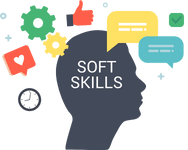
Demonstrating Soft Skills
Technical skills are important, but soft skills can often make or break a job offer.
Here’s how to showcase them:
Communication
Throughout the interview, demonstrate clear and concise communication.
Listen carefully to questions and ask for clarification if needed.
Use examples that show how you’ve communicated effectively in past roles.
You might say:
“In my last project, I was responsible for explaining complex technical concepts to non-technical stakeholders. I created visual aids and used analogies to make the information accessible, which led to quicker decision-making and project approval.”
Teamwork
Employers value team players.
Share stories that highlight your ability to collaborate and contribute to group success.
For example:
“In my current role, I noticed our team was having some communication issues that were slowing down our work. I suggested we try a new project management tool, and after getting buy-in from the team, I led the implementation. This improved our workflow and reduced project completion times by 20%.”
Adaptability
In today’s fast-paced work environments, adaptability is crucial.
Provide examples of how you’ve successfully navigated change or learned new skills quickly.
You could say:
“When our company suddenly shifted to remote work due to COVID-19, I quickly adapted my management style. I implemented virtual coffee breaks and more structured check-ins to maintain team cohesion and productivity. As a result, our team’s output remained stable despite the challenging circumstances.”
Leadership
Even if you’re not applying for a management position, leadership skills are valuable.
Share instances where you’ve taken initiative or guided others.
For instance:
“Although I wasn’t in a formal leadership role, I saw an opportunity to improve our customer onboarding process. I proposed a new system to my manager, and after getting approval, I led a small team to implement it. This reduced our onboarding time by 30% and improved customer satisfaction scores.”
If you have gaps in your employment history, don’t panic.
Be honest and frame them positively.
Here’s how:
- Be upfront
- Address the gap before the interviewer asks about it.
You could say:
“You may notice a gap in my employment history from 2019 to 2020. During that time, I was caring for a family member who was ill. This experience, while challenging, improved my time management and prioritization skills.”
Get Expert Help
Our cutting edge AI interview preparation gives you complete preparation for your interview. Get started Now!
Highlight productive activities
If you used the time to learn new skills, volunteer, or pursue personal projects, mention these.
For example:
“During my career break, I completed an online course in digital marketing and volunteered as a social media manager for a local non-profit. These experiences broadened my skill set and reinforced my passion for this field.”
Focus on the present and future
Emphasize your current skills and enthusiasm for the role you’re applying for.
You might say:
“I’m excited to bring my skills and experiences, including those gained during my time away from traditional employment, to this role. I’m particularly interested in [specific aspect of the job] and am eager to contribute to your team.”

Discussing Salary Expectations
Salary discussions can be tricky.
Here’s how to navigate them:
- Do your research
- Before the interview, research typical salaries for the role in your area.
- Use sites like Glassdoor, PayScale, or industry-specific resources.
- Provide a range
- When asked about salary expectations, give a range rather than a specific number.
- This allows for negotiation.
You could say:
“Based on my research and experience, I’m looking for a salary in the range of $X to $Y. However, I’m open to discussion and would love to know more about the entire compensation package, including benefits and growth opportunities.”
Consider the total package
Remember that salary is just one part of the compensation.
Be open to discussing other benefits like health insurance, retirement plans, or professional development opportunities.
You might say:
“While salary is important, I’m also interested in understanding the full compensation package. Can you tell me more about the benefits and growth opportunities at your company?”
Be prepared to justify your expectations
If your salary expectations are on the higher end, be ready to explain why.
Highlight your unique skills, experiences, or achievements that justify your ask.
For example:
“I’m seeking a salary in the upper range of $X to $Y because of my 10 years of experience in this field and my track record of increasing company revenues. In my last role, I implemented strategies that boosted sales by 30% year-over-year.”
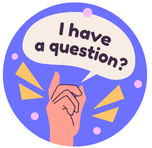
Asking Your Own Questions
Remember, an interview is a two-way street.
Asking thoughtful questions shows your interest and helps you determine if the job is right for you.
Here are some effective questions to ask:
About the role
- “Can you describe a typical day in this position?”
- “What are the biggest challenges someone in this role might face?”
- “How does this position contribute to the overall company goals?”
About the team
- “Can you tell me more about the team I’d be working with?”
- “How would you describe the company culture?”
- “What opportunities are there for collaboration across departments?”
About growth and development
- “What opportunities for professional development does the company offer?”
- “How do you see this role evolving over the next few years?”
- “Can you share examples of career paths for people who’ve been in this role?”
About the company
- “What are the company’s main priorities for the coming year?”
- “How does the company approach innovation?”
- “What do you enjoy most about working here?”
About next steps
- “What are the next steps in the interview process?”
- “When can I expect to hear back about this position?”
Handling Video Interviews
With remote work on the rise, video interviews are becoming increasingly common.
Here’s how to ace them:
- Test your tech
- Before the interview, test your internet connection, camera, and microphone.
- Make sure you know how to use the video platform they’re using.
Set the scene
- Choose a quiet, well-lit area for your interview.
- Make sure your background is neat and professional.
Dress appropriately
- Dress as you would for an in-person interview, from head to toe.
- This puts you in a professional mindset.
Make eye contact
- Look at the camera, not the screen, to create the illusion of eye contact.
- This can feel unnatural but makes a big difference in how you come across.
Minimize distractions
- Turn off notifications on your computer and phone.
- If possible, ensure you won’t be interrupted during the interview.
Have a backup plan
- Things can go wrong with technology.
- Have the interviewer’s phone number handy in case you need to switch to a phone call.
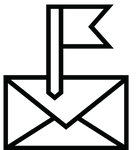
Following Up After the Interview
The interview doesn’t end when you leave the room or log off the video call.
Here’s how to follow up effectively:
- Send a thank-you note
- Within 24 hours of your interview, send a personalized thank-you email to each person you met.
- Reference specific points from your conversation to show you were engaged and interested.
For example:
“Dear [Interviewer’s Name],
Thank you for taking the time to meet with me yesterday about the [Job Title] position. I especially enjoyed our discussion about [specific topic], and I’m excited about the possibility of contributing to your team’s innovative projects.
[Add a sentence that reiterates your interest and qualifications]
I look forward to hearing from you about the next steps in the process. Please don’t hesitate to reach out if you need any additional information.
Thank you again for your time and consideration.
Best regards, [Your Name]”
Get Expert Help
Our cutting edge AI interview preparation gives you complete preparation for your interview. Get started Now!
Be patient
While it’s okay to ask about the timeline for the next steps, avoid pestering the employer.
If they gave you a timeframe for when you’d hear back, wait until after that period before following up again.
Dealing with Rejection
Not every interview will lead to a job offer.
Here’s how to handle rejection gracefully and use it as a learning opportunity:
- Thank the employer
- Even if you’re disappointed, respond professionally to the rejection.
- Thank them for their time and consideration.
You might say:
“Thank you for letting me know about your decision. While I’m disappointed, I appreciate the opportunity to have interviewed with your company.”
Ask for feedback
Not all employers will provide feedback, but it doesn’t hurt to ask.
You could say:
“I’m always looking to improve. If you have any feedback on my interview or qualifications, I’d greatly appreciate it.”
Stay in touch
If you’re still interested in the company, let them know.
You might say:
“I remain very interested in your organization. Would it be alright if I reached out about future opportunities that might be a good fit?”
Reflect on the experience
Take some time to think about what went well and what you could improve for next time.
Did you struggle with any particular questions? Were you as prepared as you could have been?
Use these insights to refine your interview skills for the future.
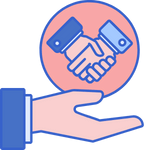
Negotiating Job Offers
If you do receive a job offer, congratulations! But the process isn’t over yet.
Here’s how to negotiate effectively:
Don’t rush
- Thank the employer for the offer and ask for time to consider it.
- Most employers will give you a few days to a week to make your decision.
- Review the entire package.
- Look beyond just the salary.
- Consider benefits, work-life balance, growth opportunities, and other factors that are important to you.
- Prioritize your requests.
- Decide what’s most important to you.
- Is it a higher salary, more vacation time, flexible working hours, or something else?
- Be prepared to make trade-offs.
Make a case for yourself
If you’re asking for more than what’s offered, be ready to justify it.
Highlight your unique skills, experiences, or achievements that warrant higher compensation.
For example:
“I’m excited about this opportunity and believe I can bring significant value to the role. Given my 5 years of experience in the field and my track record of increasing team productivity by 25% in my current role, I was hoping we could discuss a salary closer to $X.”
Consider non-salary benefits
If there’s no room for salary negotiation, consider other benefits.
This could include additional vacation days, professional development opportunities, or a flexible work schedule.
Get it in writing
Once you’ve agreed on the terms, make sure everything is documented in your offer letter or contract.

Preparing for Different Types of Interviews
Different companies use different interview formats.
Here’s how to prepare for some common types:
Phone Screening
- Keep your resume handy for reference.
- Find a quiet place with good reception.
- Speak clearly and smile – it comes through in your voice.
One-on-One Interview
- Research your interviewer if possible.
- Prepare examples that showcase your skills and experiences.
- Bring extra copies of your resume and a notepad.
Panel Interview
- Make eye contact with everyone, not just the person asking the question.
- Address your answers to the whole group.
- Remember everyone’s names and roles if possible.
Group Interview
- Show leadership and teamwork skills without dominating the conversation.
- Be respectful of other candidates while still showcasing your unique strengths.
Case Interview
- Practice solving sample case problems beforehand.
- Talk through your thought process as you work on the problem.
- Don’t be afraid to ask clarifying questions.
- Industry-Specific Interview Tips
- Different industries may have specific expectations or common practices in interviews.
Get Expert Help
Our cutting edge AI interview preparation gives you complete preparation for your interview. Get started Now!
Here are some tips for a few major sectors:
Technology
- Be prepared for technical questions or coding tests.
- Showcase your problem-solving skills and ability to learn new technologies quickly.
- Highlight any side projects or open-source contributions.
Finance
- Know your market trends and current events in the financial world.
- Be ready for brain teasers and numerical reasoning questions.
- Demonstrate your analytical skills and attention to detail.
Healthcare
- Emphasize your patient care philosophy and bedside manner.
- Be prepared to discuss ethics and confidentiality.
- Highlight any specialized certifications or continuing education.
Education
- Be ready to discuss your teaching philosophy and classroom management strategies.
- Prepare a sample lesson plan if asked.
- Highlight any experience with diverse student populations or special needs students.
Marketing
- Showcase your creativity and ability to think strategically.
- Be prepared to discuss successful campaigns you’ve worked on and their measurable results.
- Demonstrate your knowledge of current marketing trends and technologies.

Overcoming Interview Anxiety
It’s normal to feel nervous before an interview. Here are some strategies to manage anxiety:
Prepare thoroughly
The more prepared you are, the more confident you’ll feel. Research the company, practice your answers, and plan your outfit in advance.
Use relaxation techniques
Try deep breathing exercises or progressive muscle relaxation before the interview.
Visualize success
Imagine yourself confidently answering questions and making a great impression.
Reframe your thinking
Instead of seeing the interview as a test, view it as an opportunity to have a conversation about your skills and the role.
Arrive early
Give yourself plenty of time to get to the interview location.
Being rushed will only increase your stress.
Remember, it’s just a conversation
The interviewer is human too, and they want you to succeed.
They’re looking for someone to solve their problems, not to trip you up.
Crafting Your Personal Brand in Interviews
Your personal brand is what makes you unique and memorable.
Here’s how to showcase it effectively:
Identify your unique selling points
What skills, experiences, or qualities set you apart?
These could be professional achievements, personal projects, or even interesting hobbies that relate to the job.
Develop your elevator pitch
Create a concise summary of who you are professionally.
This should highlight your key strengths and career goals.
Use it to answer questions like “Tell me about yourself.”
Be consistent
Ensure your personal brand aligns across your resume, LinkedIn profile, and interview responses.
Consistency builds trust and memorability.
Share your passion
Don’t just talk about what you do, but why you do it.
Genuine enthusiasm is contagious and memorable.
Use storytelling
Instead of just listing your skills, share stories that illustrate them in action.
Stories are more engaging and memorable than dry facts.
Get Expert Help
Our cutting edge AI interview preparation gives you complete preparation for your interview. Get started Now!
Addressing Career Changes in Interviews
If you’re changing careers, you might face some specific challenges in interviews.
Here’s how to address them:
Highlight transferable skills
Identify skills from your previous career that apply to the new role.
Explain how these skills will help you succeed in the new position.
Show your commitment
Explain why you’re making the change and how it aligns with your long-term career goals.
Highlight any steps you’ve taken to prepare for the career change, like additional training or education.
Address the elephant in the room
Don’t shy away from discussing your career change.
Be upfront about it and frame it positively.
You might say:
“I’ve had a successful career in marketing, but I’ve always been passionate about technology. I’ve been learning coding in my spare time for the past two years, and now I’m excited to transition into a role where I can combine my marketing background with my newfound tech skills.”
Emphasize your fresh perspective
Position your diverse background as an asset.
Explain how your unique experiences can bring new ideas to the role.
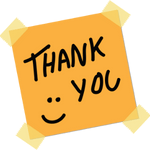
Mastering the Art of the Thank-You Note
We touched on this earlier, but let’s dive deeper into crafting the perfect thank-you note:
Timing is crucial
Send your note within 24 hours of the interview.
This shows promptness and genuine interest.
Personalize each note
If you met with multiple people, send individual notes to each.
Reference specific points from your conversation with each person.
Reiterate your interest
Use this opportunity to reinforce your enthusiasm for the role and company.
Address any lingering concerns
If there was a question you feel you didn’t answer well in the interview, you can briefly address it here.
Keep it concise
Your note should be brief – no more than a few paragraphs.
Proofread carefully
A thank-you note with errors can undo the good impression you made in the interview.
Here’s a template you can adapt:
“Dear [Interviewer’s Name],
Thank you for taking the time to meet with me yesterday regarding the [Job Title] position at [Company Name]. I enjoyed learning more about [specific aspect of the job or company you discussed].
Our conversation reinforced my enthusiasm for the position and my confidence that my skills and experiences are a strong match for the role. In particular, my background in [relevant skill or experience] aligns well with your need for [specific job requirement].
[Optional: Address any points you wish to clarify or expand on from the interview]
I’m excited about the possibility of joining your team and contributing to [specific company goal or project]. Please don’t hesitate to contact me if you need any additional information.
Thank you again for your time and consideration.
Best regards, [Your Name]”
Navigating Salary Discussions
Salary negotiations can be tricky.
Here’s how to handle them with confidence:
Do your research
Know the typical salary range for the position in your area.
Use sites like Glassdoor, PayScale, or industry-specific resources.
Consider the entire package
Remember that compensation isn’t just about salary.
Consider benefits, bonuses, stock options, and other perks.
Let them bring it up first if possible
If you can, wait for the employer to bring up salary.
This puts you in a better negotiating position.
Give a range, not a specific number
When asked about your expectations, provide a range based on your research.
This gives you room to negotiate.
Justify your ask
If you’re asking for a higher salary, be prepared to explain why.
Highlight your unique skills, experiences, or achievements that warrant higher compensation.
Be prepared to compromise
Know your walk-away point, but also be prepared to be flexible.
Consider negotiating other benefits if the salary isn’t negotiable.
Practice your pitch
Rehearse your salary discussion with a friend or mentor.
This will help you feel more confident when the time comes.

Handling Illegal Interview Questions
While rare, you might encounter questions that are actually illegal to ask in a job interview.
These typically relate to protected characteristics like age, race, religion, or family status.
Here’s how to handle them:
Recognize illegal questions
Some examples include:
“Are you married?” “Do you have children or plan to?” “How old are you?” “What’s your religion?” “Where were you born?”
Understand the intent
Often, these questions aren’t asked with malicious intent.
The interviewer might be trying to make conversation or assess your fit with the company culture.
Redirect the conversation
You can often address the underlying concern without answering the illegal question directly.
For example, if asked “Do you have children?”, you might say:
“If you’re concerned about my availability, I can assure you that I’m fully committed to the responsibilities of this role and have no problems with the required work schedule.”
Know your rights
You have the right to refuse to answer illegal questions.
If you encounter persistent illegal questioning, consider whether this is a company you want to work for.

Preparing for Situational Interview Questions
Situational interview questions ask how you would handle hypothetical work scenarios.
Here’s how to ace them:
- Listen carefully
- Make sure you understand the scenario fully before answering.
- Don’t hesitate to ask for clarification if needed.
- Use the STAR method
Even though these are hypothetical situations, you can still use the STAR method to structure your answer. Understanding the job description is crucial as it helps you identify key competencies and tailor your responses to show a strong fit for the role.
Draw from past experiences
While the situation is hypothetical, you can draw on real experiences to inform your answer.
Show your problem-solving skills
Explain your thought process as you work through the scenario.
Be specific
Provide a step-by-step explanation of how you would handle the situation.
Get Expert Help
Our cutting edge AI interview preparation gives you complete preparation for your interview. Get started Now!
Consider multiple perspectives
Show that you consider the impact of your actions on all stakeholders.
Here’s an example:
Question: “How would you handle a situation where you’re working on a team project and one team member isn’t pulling their weight?”
Answer: “I’d approach this situation carefully to ensure the best outcome for the team and the project. First, I’d try to understand why the team member isn’t contributing as expected. There could be personal issues, a lack of clarity about their role, or maybe they’re struggling with the assigned tasks.
I’d schedule a private conversation with them to discuss the situation. I’d express my concerns in a non-confrontational way, focusing on the project needs rather than personal criticism. I’d ask if they’re facing any challenges and how I or the team could support them.
If the issue persists after this conversation, I’d document the problem and our attempts to resolve it. Then, I’d bring it to the attention of our project manager or supervisor, presenting the facts objectively and asking for guidance.
Throughout this process, I’d ensure that the project doesn’t fall behind. I’d work with other team members to redistribute tasks if necessary, always keeping our project goals and deadlines in mind.
In a previous role, I faced a similar situation. By addressing it early and constructively, we were able to get the team member back on track, and we completed the project successfully and on time.”
Demonstrating Cultural Fit
Many companies place a high value on cultural fit. Preparing for interview questions and answers is crucial to demonstrate how well you align with the company’s values and work environment.
Here’s how to show you’d be a great addition to their team:
Research the company culture
Look at the company’s website, social media, and employee reviews to get a sense of their values and work environment.
Align your answers
When possible, frame your responses to align with the company’s values and culture.
Ask culture-related questions
Show your interest by asking about the company culture.
You might ask:
“How would you describe the company culture here?” “What kind of employees tend to thrive in this environment?”
Share relevant experiences
Highlight experiences from your past roles or personal life that demonstrate you’d fit well with their culture.
Be authentic
While it’s important to show you’d fit in, don’t pretend to be someone you’re not.
Cultural fit goes both ways – you want to ensure the company is a good fit for you too.
Conclusion: Your Interview Success Toolkit
We’ve covered a lot of ground in this guide.
Let’s recap the key points to remember:
Preparation is key
Research the company, practice common questions, and prepare your own questions to ask.
Use the STAR method
Structure your answers to behavioral questions using Situation, Task, Action, Result.
Show, don’t just tell
Use specific examples to illustrate your skills and experiences.
Be yourself
Authenticity helps build rapport with the interviewer.
Follow up
Send a thank-you note within 24 hours of your interview.
Stay positive
Even if you don’t get the job, treat each interview as a learning experience.
Remember, interviewing is a skill, and like any skill, it improves with practice.
Each interview you do, regardless of the outcome, is an opportunity to refine your technique and get better at presenting yourself.
Are you ready to nail that interview? Remember to use the STAR method, show self-awareness, and share specific examples.
Be honest yet positive, and don’t hesitate to talk about your leadership skills and career aspirations.
Practice, practice, practice to perfect your interview skills.
Approach the interview with confidence and clarity to make a lasting impact in the competitive job market.
Be well-prepared, and transform your nervousness into a successful outcome!
Get Expert Help
Our cutting edge AI interview preparation gives you complete preparation for your interview. Get started Now!

